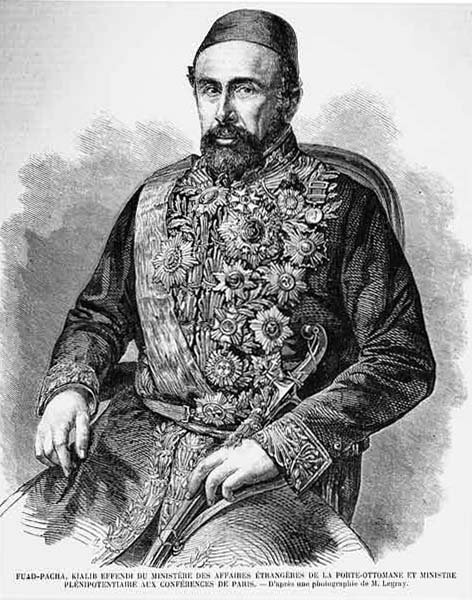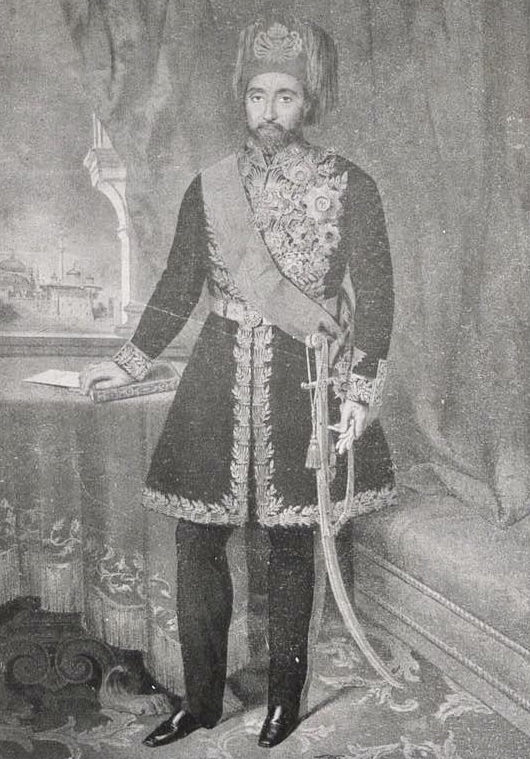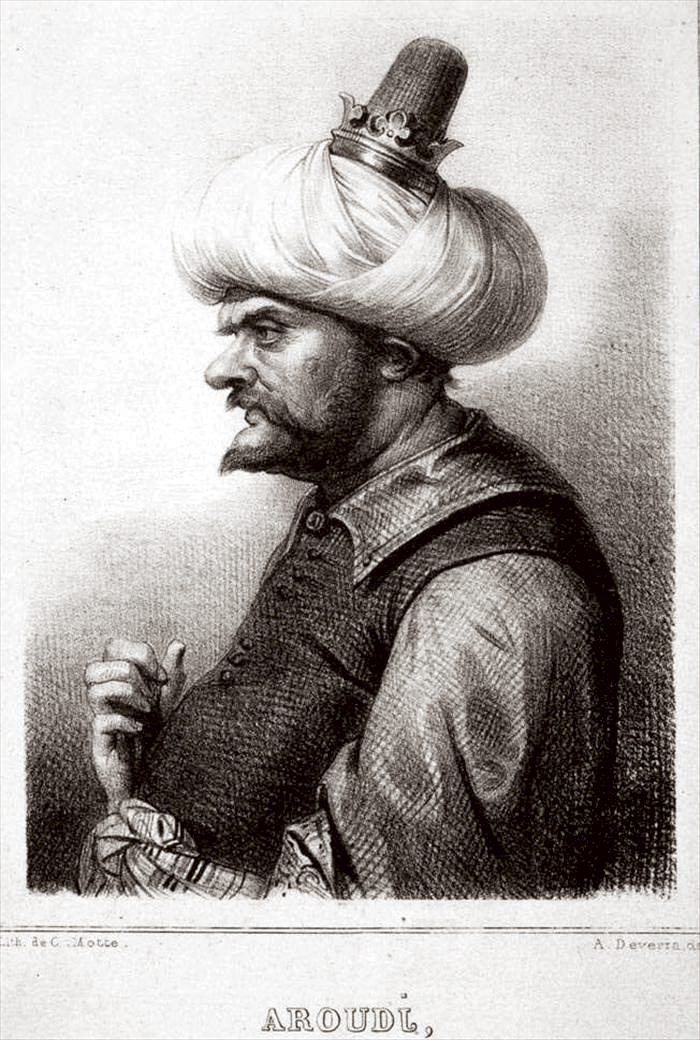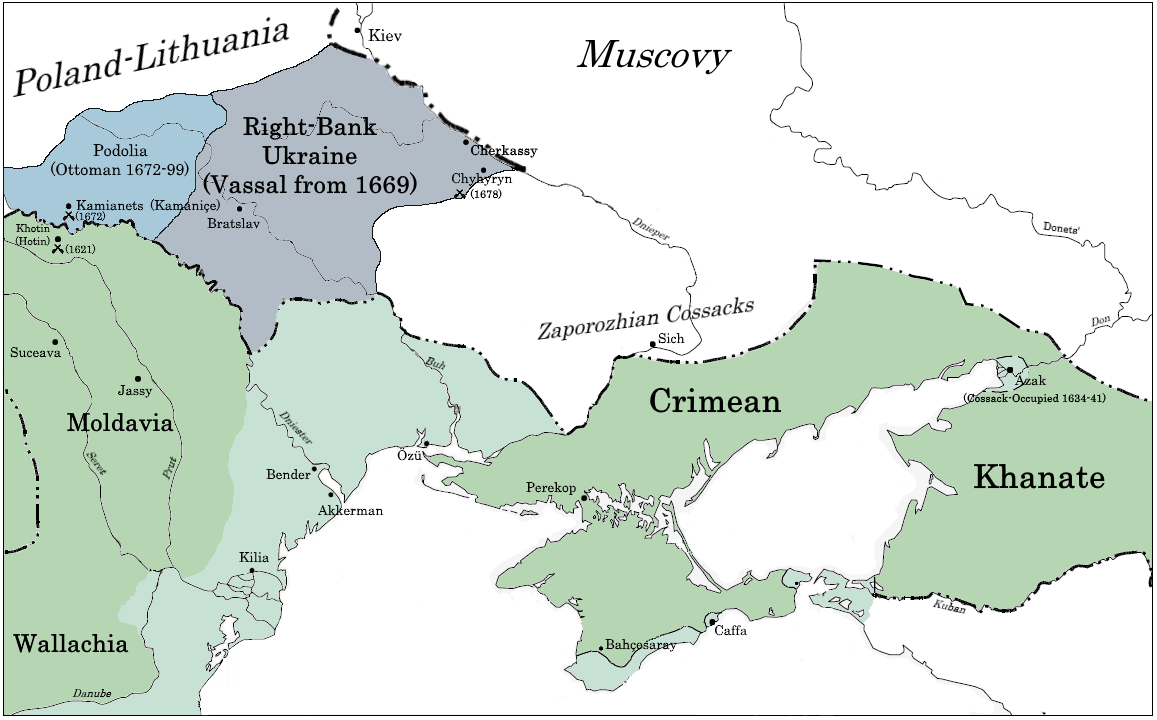|
Keçecizade Fuat Paşa
Mehmed Fuad Pasha (1814 – February 12, 1869), sometimes known as Keçecizade Mehmed Fuad Pasha and commonly known as Fuad Pasha, was an Ottoman administrator and statesman, who is known for his prominent role in the Tanzimat reforms of the mid-19th-century Ottoman Empire, as well as his leadership during the 1860 Mount Lebanon civil war in Syria. He represented a modern Ottoman era, given his openness to European-style modernization as well as the reforms he helped to enact. Among other posts, he served as Grand Vizier, the equivalent of Prime Minister, on two occasions between 1861 and 1866. He is often regarded, along with Mehmed Emin Âli Pasha, as one of the most influential Ottoman statesmen, who favoured a French-inspired civil code for the newly established civil courts in 1868. Fuad Pasha was a fervent supporter of keeping the empire an absolute monarchy, rejecting the ideas of being legally bounded or restricted by a constitution or legislature. He often clashed wi ... [...More Info...] [...Related Items...] OR: [Wikipedia] [Google] [Baidu] |
Pasha
Pasha (; ; ) was a high rank in the Ottoman Empire, Ottoman political and military system, typically granted to governors, generals, dignitary, dignitaries, and others. ''Pasha'' was also one of the highest titles in the 20th-century Kingdom of Egypt and it was also used in Morocco in the 20th century, where it denoted a regional official or governor of a district. Etymology The English word ''pasha'' comes from Turkish language, Turkish ('; also ()). The Oxford English Dictionary attributes the origin of the English borrowing to the mid-17th century. The etymology of the Turkish word itself has been a matter of debate. Contrary to titles like emir (''amīr'') and bey (sir), which were established in usage much earlier, the title ''pasha'' came into Ottoman Empire, Ottoman usage right after the reign of Osman I (d. 1324), though it had been used before the Ottomans by some Anatolian beyliks, Anatolian Turkish rulers of the same era. Old Turkish had no fixed distinction betwe ... [...More Info...] [...Related Items...] OR: [Wikipedia] [Google] [Baidu] |
Namık Kemal
Namık Kemal (, ; ; 21 December 1840 – 2 December 1888) was an Ottoman writer, poet, democrat, intellectual, reformer, journalist, playwright, and political activist who was influential in the formation of the Young Ottomans and their struggle for governmental reform in the Ottoman Empire during the late Tanzimat period, which would lead to the First Constitutional Era in the Empire in 1876. Kemal was particularly significant for championing the notions of freedom and fatherland in his numerous plays and poems, and his works would have a powerful impact on the establishment of and future reform movements in Turkey, as well as other former Ottoman territories. He is often regarded as being instrumental in redefining Western concepts like natural rights and constitutional government. Early years An Ottoman subject, Namık Kemal was born in Tekirdağ (present-day Turkey, then part of the Ottoman Empire) on 21 December 1840, to mother Fatma Zehra Hanım and father Mustafa As ... [...More Info...] [...Related Items...] OR: [Wikipedia] [Google] [Baidu] |
Bucharest
Bucharest ( , ; ) is the capital and largest city of Romania. The metropolis stands on the River Dâmbovița (river), Dâmbovița in south-eastern Romania. Its population is officially estimated at 1.76 million residents within a greater Bucharest metropolitan area, metropolitan area of 2.3 million residents, which makes Bucharest the List of cities in the European Union by population within city limits, 8th most-populous city in the European Union. The city area measures and comprises 6 districts (''Sectors of Bucharest, Sectoare''), while the metropolitan area covers . Bucharest is a major cultural, political and economic hub, the country's seat of government, and the capital of the Muntenia region. Bucharest was first mentioned in documents in 1459. The city became the capital in 1862 and is the centre of Romanian media, culture, and art. Its architecture is a mix of historical (mostly History of architecture#Revivalism and Eclecticism, Eclectic, but also Neoclassical arc ... [...More Info...] [...Related Items...] OR: [Wikipedia] [Google] [Baidu] |
Abdülmecid I
Abdülmecid I (, ; 25 April 182325 June 1861) was the 31st sultan of the Ottoman Empire. He succeeded his father Mahmud II on 2 July 1839. His reign was notable for the rise of nationalist movements within the empire's territories. Abdülmecid's greatest achievement was the announcement of the Tanzimat Edict upon his accession, prepared by his then Foreign Minister Mustafa Reshid Pasha, which effectively began the Tanzimat era, or era of reorganization, in the Ottoman Empire. Abdülmecid was a mild-mannered monarch, giving the Sublime Porte the autonomy needed for its reform projects. One of the main goals of the Tanzimat was to encourage Ottomanism among the millets to stop rising nationalist movements within the empire, but despite new laws and reforms to integrate non-Muslims and non-Turks more thoroughly into Ottoman society, in the long term, the movement failed. Abdülmecid forged alliances with the major powers of Western Europe, namely the United Kingdom and France, ... [...More Info...] [...Related Items...] OR: [Wikipedia] [Google] [Baidu] |
Edict Of Gülhane
The Gülhane Hatt-ı Şerifi ("Supreme Edict of the Rosehouse") or Tanzimât Fermânı ("Imperial Edict of Reorganization") was a proclamation by Ottoman Sultan Abdülmecid I in 1839 that launched the Tanzimât period of reforms and reorganization in the Ottoman Empire. The 125th anniversary of the edict was depicted on a former Turkish postcard stamp. The proclamation was issued at the behest of reformist Grand Vizier Mustafa Reşid Pasha. It promised reforms such as the abolition of tax farming, reform of conscription, and guarantee of rights to all Ottoman citizens regardless of religion or ethnic group. The goal of the decree was to help modernize the empire militarily and socially so that it could compete with the Great Powers of Europe. It also was hoped the reforms would win over the disaffected parts of the empire, especially in the Ottoman controlled parts of Europe, which were largely Christian. At the time of the edict, millets (independent communal law-c ... [...More Info...] [...Related Items...] OR: [Wikipedia] [Google] [Baidu] |
Dragoman
A dragoman was an Interpreter (communication), interpreter, translator, and official guide between Turkish language, Turkish-, Arabic language, Arabic-, and Persian language, Persian-speaking countries and polity, polities of the Middle East and European Embassy, embassies, consulates, vice-consulates and trading posts. A dragoman had to have a knowledge of Arabic, Persian, Turkish, and European languages. In the Ottoman Empire, Dragomans were mainly members of the Ottoman Greeks, Ottoman Greek community, who possessed considerable multilingual skills, because Greek trading communities did substantial business in the markets of the Mediterranean Sea, the Black Sea, the Atlantic Ocean, and the Indian Ocean. To a lesser extent, other communities with international commercial links, notably the Armenians, were recruited. Etymology and variants In Arabic language, Arabic the word is ترجمان (''tarjumān''), in Turkish language, Turkish ''tercüman''. Deriving from the Semiti ... [...More Info...] [...Related Items...] OR: [Wikipedia] [Google] [Baidu] |
Sultan
Sultan (; ', ) is a position with several historical meanings. Originally, it was an Arabic abstract noun meaning "strength", "authority", "rulership", derived from the verbal noun ', meaning "authority" or "power". Later, it came to be used as the title of certain rulers who claimed almost full sovereignty (i.e., not having dependence on any higher ruler) without claiming the overall caliphate, or to refer to a powerful governor of a province within the caliphate. The adjectival form of the word is "sultanic", and the state and territories ruled by a sultan, as well as his office, are referred to as a sultanate ( '. The term is distinct from king ( '), though both refer to a sovereign ruler. The use of "sultan" is restricted to Muslim countries, where the title carries religious significance, contrasting the more secular ''king'', which is used in both Muslim and non-Muslim countries. Brunei, Malaysia and Oman are the only sovereign states which retain the title "sultan" ... [...More Info...] [...Related Items...] OR: [Wikipedia] [Google] [Baidu] |
Mustafa Reşid Pasha
Mustafa Reşid Pasha (; literally ''Mustafa Reshid Pasha''; 13 March 1800 – 7 January 1858) was an Ottoman Turkish statesman and diplomat, known best as the chief architect behind the imperial Ottoman government reforms known as Tanzimat. Born in Constantinople in 1800, Mustafa Reşid entered public service at an early age and rose rapidly, becoming ambassador to France (1834) and to the United Kingdom (1836), minister for foreign affairs (1837), and once again ambassador to the United Kingdom (1838) and to France (1841). In the settlement of the Oriental Crisis of 1840, and during the Crimean War and the ensuing peace negotiations, he rendered important diplomatic services to the Ottoman state. He returned a third time as ambassador to France in 1843. Between 1845 and 1857, he held the office of Grand Vizier six times. One of the greatest and most versatile statesmen of his time, thoroughly acquainted with European politics and well-versed in national and international af ... [...More Info...] [...Related Items...] OR: [Wikipedia] [Google] [Baidu] |
Ottoman Tunisia
Ottoman Tunisia, also known as the Regency of Tunis, refers to a territory of Ottoman Empire that existed from the 16th to 19th century in what is largely modern-day Tunisia. During the period of Ottoman Rule, Tunis was administratively integrated into the Ottoman Empire as the Eyalet of Tunis. The Ottoman presence in the Maghreb began with the conquest of Algiers in 1516 by the Ottoman Turkish corsair and ''beylerbey'' Aruj (Oruç Reis). In 1534, the Ottoman navy under the command of Kapudan Pasha Hayreddin Barbarossa, himself the younger brother of Aruj, attacked and successfully captured Tunis, which was then a territory of the Hafsids. However, less than a year later, Emperor Charles V sent a large, multinational invasion force to wrest control of Tunis, which attacked from across the Strait of Sicily and overwhelmed the city's Ottoman defenders. Following the final Ottoman reconquest of Tunis from Spain in 1574, the Ottoman Empire would hold Tunis for over three cen ... [...More Info...] [...Related Items...] OR: [Wikipedia] [Google] [Baidu] |
Grand Vizier
Grand vizier (; ; ) was the title of the effective head of government of many sovereign states in the Islamic world. It was first held by officials in the later Abbasid Caliphate. It was then held in the Ottoman Empire, the Mughal Empire, the Sokoto Caliphate, the Safavid dynasty, Safavid Empire and Morocco, Cherifian Empire of Morocco. In the Ottoman Empire, the grand vizier held the imperial seal and could convene all other viziers to attend to affairs of the state; the viziers in conference were called "''Kubbealtı'' viziers" in reference to their meeting place, the ''Kubbealtı'' ('under the dome') in Topkapı Palace. His offices were located at the Sublime Porte. Today, the Prime Minister of Pakistan is referred to in Urdu as ''Wazir-e-azam'', which translates literally to grand vizier. Initially, the grand viziers were exclusively of Turk origin in the Ottoman Empire. However, after there were troubles between the Turkish grand vizier Çandarlı Halil Pasha the Younger and S ... [...More Info...] [...Related Items...] OR: [Wikipedia] [Google] [Baidu] |
Merzifonlu Kara Mustafa Pasha
Kara Mustafa Pasha (; ; "Mustafa Pasha the Courageous"; 1634/1635 – 25 December 1683) was an Ottoman nobleman, military figure and Grand Vizier, who was a central character in the Ottoman Empire's last attempts at expansion into both Central and Eastern Europe. Early life and career Kara Mustafa Pasha was of Turkish origin. However, he was brought up in the Köprülü family, of Albanian origin. He was born in the village of Mirince/Marınca near Merzifon (now called Karamustafapaşa after him), the son of a ''sipahi'', cavalry man. His father is said to have served under Köprülü Mehmed Pasha. Possibly as a way to increase his possibilities to start an administrative career, he was introduced into the Köprülü household, where he was educated by Köprülü Mehmed Pasha, and married into the Köprülü family.''The Siege of Vienna'', John Stoye, p. 18. How he entered the family and the details of his marriage are unclear. Within the household's inner service (''ende ... [...More Info...] [...Related Items...] OR: [Wikipedia] [Google] [Baidu] |
Medrese
Madrasa (, also , ; Arabic: مدرسة , ), sometimes Romanization of Arabic, romanized as madrasah or madrassa, is the Arabic word for any Educational institution, type of educational institution, secular or religious (of any religion), whether for elementary education or higher learning. In countries outside the Arab world, the word usually refers to a specific type of religious school or college for the study of the religion of Islam (loosely equivalent to a Seminary, Christian seminary), though this may not be the only subject studied. In an Islamic architecture, architectural and historical context, the term generally refers to a particular kind of institution in the historic Muslim world which primarily taught Sharia, Islamic law and Fiqh, jurisprudence (''fiqh''), as well as other subjects on occasion. The origin of this type of institution is widely credited to Nizam al-Mulk, a vizier under the Seljuk Empire, Seljuks in the 11th century, who was responsible for buildi ... [...More Info...] [...Related Items...] OR: [Wikipedia] [Google] [Baidu] |









